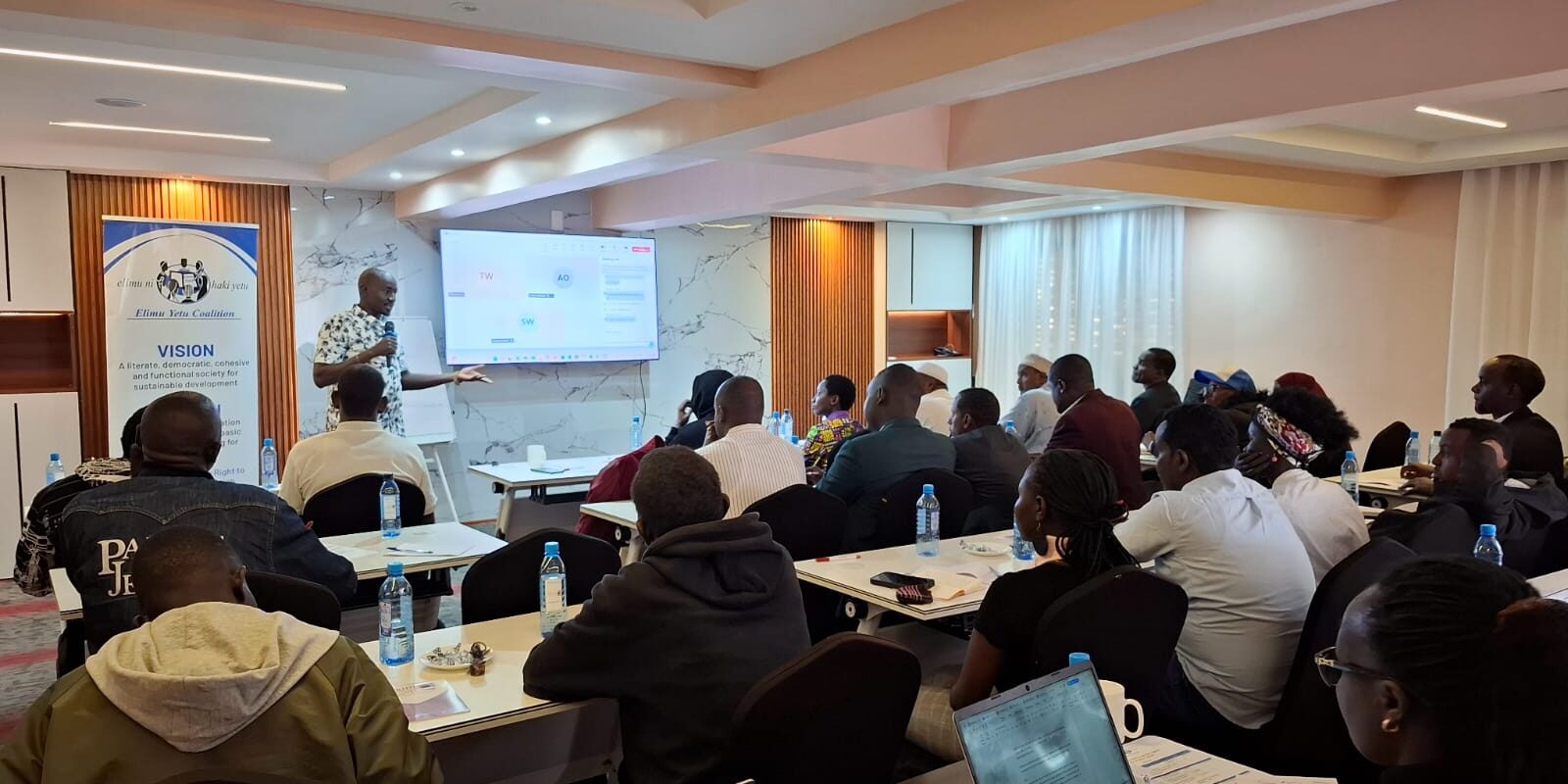When Elimu Yetu Coalition (EYC) joined hands with Save the Children and the African Population and Health Research Centre (APHRC) in July 2024 to launch the Teach Well Voices Project, the goal was clear: strengthen the quality of instruction and improve the wellbeing of teachers in refugee camps and host communities, so that every child, regardless of their status, can access inclusive, holistic, and quality education.
The project’s mission responds to a persistent challenge in Kenya’s refugee-hosting counties of Turkana and Garissa. Although political will exists to ensure learning continuity in refugee camps, progress on the ground remains uneven. Qualified refugee teachers often face a demoralizing reality, they cannot get the recognition, certification, or accreditation required to formally join the Continuous Teacher Professional Development programs offered by the Teachers Service Commission (TSC). Without access to these opportunities, their career progression, remuneration, and motivation suffer, directly affecting the quality of education for the thousands of refugee boys and girls in their classrooms.
In the first year of the five-year project, EYC took a bold step to ensure refugee teachers are no longer left out of education policy conversations. Through targeted engagement meetings in Kakuma camp, Turkana County and Dadaab camp, Garissa County, the Coalition facilitated the formation of Communities of Practice (CoPs) safe spaces where refugee teachers could share experiences, identify pressing needs, and unite their voices for advocacy.
EYC’s work didn’t stop at the camps. The Coalition convened two regional forums one in the Rift Valley region and another in the North Eastern region; bringing together members of civil society working in the education space from the respective regions alongside refugee teachers. These forums provided a critical bridge between grassroots experiences and policy-level dialogue.
For the refugee teachers, it was the first time they had sat across the table with their respective regional Civil Society Organisations to, explain in their own words the barriers they face and the solutions they believe can work.
This then culminated in a biannual meeting held in Nairobi, where 16 refugee teachers (eight from Kakuma and eight from Dadaab) travelled to the capital city for both a reflection point and a forward-looking strategy session.
During the meeting, teachers shared tangible progress, such as increased awareness of their situation among policymakers and stronger collaboration with civil society allies. The forum also mapped out next steps for pushing the national agenda on refugee teacher accreditation and wellbeing.
In just over a year, the Teach Well Voices Project has transformed isolated concerns into a unified advocacy movement. Refugee teachers now have structured platforms to articulate their needs, and the Coalition has successfully elevated these voices to regional and national arenas.
The project is still in its early stages, but the foundation is strong. With four more years ahead, EYC is committed to leveraging its national, regional, and international influence to ensure that recognition, certification, and professional development for refugee teachers become a reality.
By creating spaces where refugee teachers are heard, valued, and supported, the Elimu Yetu Coalition is not just improving teaching conditions—it’s shaping a future where every child’s right to education is protected, and every teacher’s contribution is recognised.




